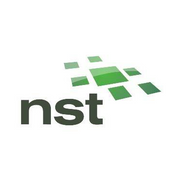What Is Phishing & How Can You Avoid Getting Scammed?

In addition to computer malware and spam, phishing schemes are among the most common online menaces. They cost U.S. businesses as much as $500 million per year, much of that due to business email compromise scams. If you are not familiar with phishing scams and do not have an IT consultant to explain them to you, the guide below covers how they work and how to avoid being reeled in.
What Are Phishing Schemes?
Phishing involves scam artists contacting internet users and pretending to be a legitimate business. Their goal is to convince targets to part with their financial information. The scammers then use that information to steal money from the target's bank account, apply for credit, or otherwise profit.
How Does Phishing Work?
 Targets receive an official-looking email—often from a bank or retailer with whom they have an account. The email contains the familiar logo, layout, and color scheme, all of which help convince the recipient that the email is legitimate when it is not. Scammers utilize various ploys—including thanking the target for a purchase they did not make or threatening to cancel their account if they do not take immediate action—to urge the target to share their account information or click on a link to a website. Upon clicking the link, the site installs malware on the target's hard drive that compromises their security by recording their keystrokes.
Targets receive an official-looking email—often from a bank or retailer with whom they have an account. The email contains the familiar logo, layout, and color scheme, all of which help convince the recipient that the email is legitimate when it is not. Scammers utilize various ploys—including thanking the target for a purchase they did not make or threatening to cancel their account if they do not take immediate action—to urge the target to share their account information or click on a link to a website. Upon clicking the link, the site installs malware on the target's hard drive that compromises their security by recording their keystrokes.
How Can You Guard Against Phishing?
Carefully examine all emails you receive from banks, retailers, and other organizations. If they include unusual or suspicious messages, contact the organization by phone using a number from a previous billing statement. Don't click on links the email provides or call a listed number.
Telltale signs of phishing include poor grammar, misspellings, and emails to addresses not connected to the relevant financial account. Other signs include not using your legal name, just using your email address, and obvious scare tactics meant to urge you into quick action.
Never provide personal or financial information unless you are certain you're dealing with a reputable source. Finally, a good IT consultant can often show you examples of phishing emails, teach you how to recognize them, and help you improve your computer security measures.
To work with an experienced IT consultant to beef up your network's cybersecurity, contact Network Solutions & Technology in East Northport, NY. They are based in Suffolk County and service clients throughout New York State. In addition to online security, they also specialize in app and website development, tech support, and Cloud computing. Visit their website or call (877) 678-8080 to schedule a consultation with an IT consultant.
About the Business
Have a question? Ask the experts!
Send your question

